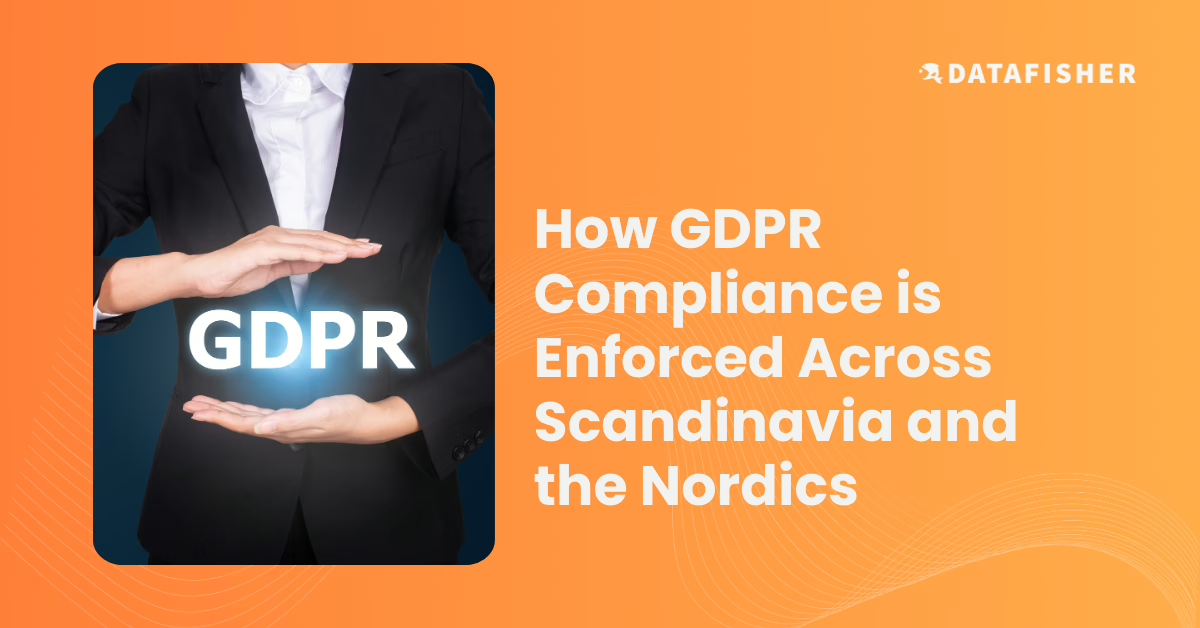The General Data Protection Regulation (GDPR) is a comprehensive data privacy and protection framework that the European Union (EU) adopted in April 2016 and started enforcing in May 2018. The objective of the GDPR was to empower individuals with greater control over their personal data and enhance the level of accountability and transparency among organizations that handle such information.
The GDPR replaced the Data Protection Directive of 1995 and introduced significant changes, including the expansion of individuals’ rights, the imposition of strict data breach notification requirements, and the application of extraterritorial jurisdiction. This means it affects any organization that processes personal data of citizens living in the 27 nations of the EU, regardless of the organization’s location.
The GDPR has a broad international impact, as its provisions are applicable not only to businesses within the EU but also to those outside the EU that handle the personal data of EU citizens. Countries around the world have taken note of the GDPR’s rigorous data protection standards, and many have implemented or are considering similar regulations in their own jurisdictions.
The Scandinavian and Nordic countries—Denmark, Finland, Iceland, Norway, and Sweden—are prime examples of how some European nations have adhered to the GDPR and instituted additional measures to strengthen data protection within their borders. From Denmark’s establishment of the Data Protection Act to the introduction of Norway’s Personal Data Act, these countries not only uphold GDPR principles but also adeptly navigate their distinctive legal frameworks. Despite the diverse nuances of each country’s regulations, these nations skillfully balance their commitment to data privacy while upholding their renowned progressive policies, each guided by its distinct governing body.
Denmark
Denmark aligns its data privacy laws with the GDPR through the Danish Data Protection Act. This legislation serves as a framework reinforcing the GDPR’s principles, emphasizing consent, data subject rights, and accountability. The Danish Data Protection Agency stands as the primary regulatory body entrusted with overseeing compliance, providing guidance, and imposing penalties for infringements. Danish organizations, both public and private, navigate both GDPR provisions and domestic regulations to ensure comprehensive data protection measures. The agency’s focus lies in raising awareness, offering support to organizations for compliance, and conducting investigations into potential violations.
Finland
Finland, echoing GDPR provisions, bolsters data protection through its own Data Protection Act. This legislation complements GDPR requirements, aiming to enhance the protection of individuals’ rights regarding their personal data. The Finnish Data Protection Ombudsman serves as the supervisory authority, responsible for monitoring data processing activities, advocating for individuals’ rights, and conducting audits to ensure compliance. Finnish businesses and organizations navigate this legal landscape, implementing robust data privacy measures and procedures to align with GDPR standards while respecting individuals’ rights.
Iceland
Iceland, as a member of the European Economic Area (EEA), directly implements GDPR into national legislation. The Data Protection Authority of Iceland supervises GDPR compliance, ensuring the protection of individuals’ rights regarding data privacy. Icelandic businesses and entities operate within this legal framework, aligning their practices with GDPR provisions to ensure robust data protection measures. The authority oversees compliance, offers guidance, and conducts investigations to uphold GDPR standards and protect individuals’ data rights.
Sweden
Sweden, committed to GDPR compliance, fortifies its data privacy laws through the Swedish Data Protection Authority and the Swedish Data Protection Act. This legislative framework seamlessly integrates with EU regulations while incorporating supplementary provisions tailored to address specific national considerations. The Swedish Data Protection Authority diligently enforces data privacy laws, offering guidance, conducting investigations, and imposing sanctions for non-compliance across public and private sectors. Its emphasis lies in ensuring the effective implementation of GDPR principles, safeguarding individuals’ privacy rights, and promoting a culture of transparency and accountability within organizations.
Norway
Norwegian data privacy regulations revolve around the country’s Personal Data Act, designed to align with GDPR standards and reinforce data protection. The Norwegian Data Protection Authority serves as the primary regulatory body overseeing compliance, facilitating awareness programs, and imposing penalties for non-compliance. Norwegian entities, both public and private, must navigate this legal landscape to ensure comprehensive data protection measures are in place while respecting individuals’ rights concerning their personal information. The authority plays a pivotal role in fostering a culture of compliance, providing guidance, and ensuring robust data protection practices across various sectors.
Summary
The Scandinavian and Nordic countries, while sharing a commitment to GDPR compliance, have established distinct legal frameworks to reinforce data privacy regulations. Denmark, Finland, Iceland, Sweden, and Norway have each tailored national policies to strengthen data protection within their borders while upholding GDPR principles. Denmark’s Data Protection Act emphasizes consent and accountability, overseen by the Danish Data Protection Agency. Finland strengthens data protection through its own Data Protection Act. Iceland directly implements GDPR into national legislation, as a member of the European Economic Area (EEA). Sweden fortifies its laws through the Swedish Data Protection Authority, ensuring compliance and transparency. Meanwhile, Norway aligns with GDPR standards via its Personal Data Act, regulated by the Norwegian Data Protection Authority, emphasizing comprehensive data protection. These collective efforts prioritize individuals’ rights, transparency, and accountability, illustrating the region’s dedication to safeguarding personal data and fostering confidence in digital interactions.
